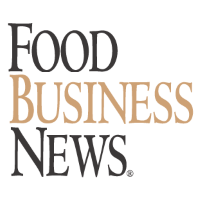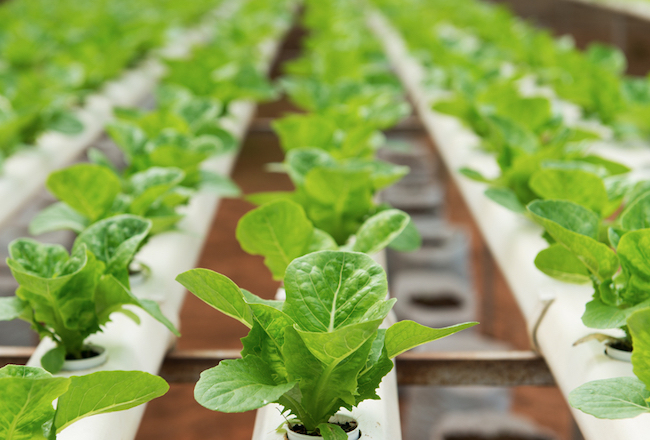
With Lockdowns Nearly Behind Us, How We'll be Eating and Shopping in 2021
When the pandemic hit in earnest in the first quarter of 2000, all of our eating and shopping habits changed to an unprecedented degree.
In-person dining and conferences evaporated, travel came to a virtual standstill, working from the office largely disappeared, at-home cooking saw a massive resurgence, e-commerce and delivery exploded, hoarding of consumer staples became a standard practice, non-organic cookie and cracker legacy brands had very big comebacks, and at the same time, organic sales in 2020 grew by an eye-popping 12.4%, reaching nearly $62 billion.
Now that society is starting to return to some semblance of what we knew in 2019, there are many uncertainties about what we should expect moving forward, in regard to how we will be eating and shopping for food. As such, I asked a handful of organic food CEOs, founders and executives about how they see the months ahead unfolding, and below are their edited answers.
HEALTHY OR INDULGENT EATING HABITS?
I am already seeing a decline in indulgent-led food categories, and they are now down year-over-year, after having surged in 2020. One study reported that nearly 42% of adults in the U.S. gained an average of 29 pounds over the last 12 months. — Greg Fleishman, Co-Founder/CEO of Foodstirs
As restrictions begin to lift and people start re-entering society, I think we’ll see a lot of the “The Lonely Joe Diet.” This was a term coined by a friend of mine several years ago, and it means that when we are eating out, we’ll see a lot of indulgence. However, when we are home, we’ll be focused on eating healthier. Among the many things we learned in the past year, there is a new understanding of what and how we eat and the critical need to lead a healthy lifestyle. — Rachel Drori, Founder of Daily Harvest
As data showed, people did reach for those not-so-healthy nostalgia brands in times of stress this past year, but they also sought out products that provided immune support. We see the immunity trend only strengthening as things open back up. — Matt McLean, Founder of Uncle Matt’s Organic
A lot of people are ashamed at how much weight they gained during COVID and are now determined to live a healthier lifestyle by eating better and getting back to a positive workout routine. Many people can’t ignore the CDC headline that said 78% of COVID hospitalizations occurred with people who were overweight or obese. — Fred Haberman, Founder of Freak Flag Organics
ORGANIC: COOKING AT HOME VERSUS EATING OUT
We continue to see a rise in the purchases of organic options, and we continue to lean into that to create more for our members. So, while I think there is some ripple effect from restaurants largely not buying organic, I do expect to see continued consumer traction there as people continue to look for ways to optimize their health and wellness routines. — Jeremiah McElwee, Chief Merchandising Officer at Thrive Market
While I’d love to say that people will eat organically given society’s increased knowledge of how food affects every element of our health and the planet, I think it will continue to be a challenge. More people will be eating out, but the reality is that it’s really expensive for restaurants to serve food made from organic ingredients. Even before the pandemic, restaurants that offered organic ingredients struggled to survive. — Rachel Drori, Founder of Daily Harvest
COVID may very well have strengthened the appeal and appreciation for organic during this period. As we leave the COVID lockdown, I think many people have reconnected with food and ingredients in a very positive way. This joy and shine of being closer to your food and preparing food will carry on. — Stephen Williamson, Founder/CEO of Forager Project
Organic saw strong, sustained growth through the pandemic and undoubtedly grew its customer base. The pandemic challenged people to reflect on their own health, and organic farming is the gold standard for clean, healthy food. This will be a positive for our overall industry as we head into the remainder of the year and beyond. — Matt McLean, Founder of Uncle Matt’s Organic
Fear of illness, and even death, has people more mindful than ever of making healthy lifestyle choices. In addition, a greater awareness of climate change and an overall desire to make food choices rooted in our values means organic food consumption will continue to grow. — Anne Thompson, Vice President of Marketing at Nutiva
SHOPPING: MORE OR LESS E-COMMERCE?
I would imagine that in-store shopping will tick back up, but there will also be a large percentage of people who realize the time savings and convenience of online shopping and never go back or will do so in a limited way. With restaurants opening, I would expect to see some of the everyday pantry staples to flatten out, in terms of the sales spike we saw in 2020, as people cook less and eat out more. But I have also heard from many people that they rediscovered their love of cooking and wonder why they ate out so much previously. — Jeremiah McElwee, Chief Merchandising Officer at Thrive Market
Baking was a trend we saw take off at the beginning of the pandemic, but with consumers’ busy schedules resuming, we’re likely to see the baking category decline. Snacking, particularly better-for you snacks that can also be used as meal replacements, such as nutrition bars or yogurt cups, will see a significant rebound as people head back to work in person and need quick, healthy fill-in meals. — Anne Thompson, Vice President of Marketing at Nutiva
Single-serve and grab-and-go will see a boost in sales as consumers return to their regular shopping patterns. These items are typical impulse buys associated with deli and prepared foods, plus endcap coolers near checkout. — Matt McLean, Founder of Uncle Matt’s Organic
People will continue to eat more at home compared to pre-pandemic levels, due in part to hybrid work models and restaurants being unable to find workers during the summer. The perimeter of the store will benefit as workers begin to come back more to work, and people will trade fresh foods for the processed foods they stocked up on during the pandemic. — Fred Haberman, Founder of Freak Flag Organics
Many of the categories that suffered during the peak period of restrictions are bouncing back, particularly prepared foods and anything classified as grab-and-go. Center store categories that increased significantly — as consumers spent time preparing their own food — are also experiencing declines. E-commerce does not appear to be slowing down, and we are seeing many new marketplaces starting up and expanding, including PopShop Live, FastAF, GoodEggs and Anycart. — Greg Fleishman, Co-Founder/CEO of Foodstirs
I think the major advancement in online shopping from the pandemic — whether grocery, restaurant or another direct-to-consumer model — has put us years ahead, in terms of adoption. I do not see society regressing here. I think those that will have a hard time are those who still can’t adapt to the digitization of their industry. — Michael Joseph, Founder of Scratch Kitchen
 |
With gratitude, 
Max Goldberg, Founder |
Quick Hits
* The 50 greatest food stores in the world.
* 33% of Instacart shoppers bought dairy-free milk or plant-based meat in 2021. Wow.
* These schoolchildren in France sure are lucky.
* Natural food retailers reveal their Top 7 Traffic-Driving Trends.
* Organic Valley has announced low carbon footprint dairy and is on the path to carbon neutrality.
* The organic meat scandal hitting Belcampo.
* Fair Trade USA and Chobani’s launch of “Fair Trade Dairy” is opposed by labor and human rights groups.
* 10-minute grocery delivery is coming to NYC.
* Gene-edited hemp will soon be growing in San Diego — not good.
* Very sad news about the passing of Carla Bartolucci, co-founder/CEO of Jovial Foods and Bionaturae. She played a significant role in the resurgence of organic ancient grains.
New Organic Products
Tepache Probiotic Drinks from De La Calle!
Alex Matthews, founder of Juice Served Here and creative agency HERE Studio, has just unveiled his latest venture - De La Calle! Tepache is the company's line of organic, naturally fermented and probiotic drinks from Mexico, and they are available in five flavors -- ginger manzana, orange turmeric, mango chili, tamarind citrus and pineapple spice.Barista Milk from Straus Family Creamery
Developed in collaboration with skilled baristas, the Straus Organic Barista Milk line includes four fat levels of milk and is designed specifically for chefs and specialty coffee and tea professionals. It is lightly homogenized, which emulsifies the fat within the milk so that the cream no longer separates and helps baristas achieve memorable micro-foam designs.Mushroom Herbal Tea and Coffee from Teeccino
Teeccino recently introduced organic herbal coffee and teas that are paired with adaptogenic herbs to enhance their combined wellness benefits. Available in six varieties -- chaga ashwagandha butterscotch cream, cordyceps schisandra cinnamon berry, lion's mane rhodiola rose, reishi eleuthero French roast, tremella tulsi cardamom and turkey tail astragalus toasted maple.Hemp-Infused Coconut Powder from Ancient Cannabis
New from Ancient Cannabis is an organic, hemp-infused coconut powder. An alternative to flour, this coconut powder is vegan, keto-friendly and gluten-free, and it contains only three ingredients -- full-spectrum hemp oil, coconut and sunflower seeds.
Weekly News Summaries


U.S. Organic Sales Soar to Nearly $62B in 2020, Supplies Constrained
With home cooking surging during the pandemic, sales of organic products grew 12% -- and could have grown more if supplies weren't constrained.

Whole Foods is Centralizing Buying
By Jennifer Strailey
In a letter to team members the other day, Whole Foods said that it is merging its global and regional merchandising teams into a single team that will support purchasing across the entire company.

Farmer Direct Organic is Purchased by Above Food
By Jeff Gelski
Canada-based Above Food has acquired Farmer Direct Organic, which offers legume proteins and grains that are certified organic.

Appeal is Filed Regarding Court's Decision on Hydroponics in Organic
Another legal move is made in a bid to get rid of hydroponics in organic.

Organic Meat Half as Likely to be Contaminated with Antibiotic Resistant Bacteria
By Katy Askew
New research suggests organic-certified meat is less likely to be contaminated with bacteria that can cause human illnesses, including multidrug-resistant organisms, than conventionally-raised meat.
Trump EPA Changed and Omitted Science During 2018 Review of Dicamba
The Office of the Inspector General found that "senior-level" EPA staffers "changed" and "omitted" research-based evidence of the drift risks of the pesticide that has already damaged millions of acres of crops. Surprised?


Sambazon raises $45M
By Sam Danley
Sambazon has just secured a $45 million investment from Nextworld Evergreen LP, the consumer-focused growth equity fund of San Francisco-based Nextworld LLC.
Mexican Judge Upholds GMO Corn and Glyphosate Ban
By David Alire Garcia
A Mexican federal judge ruled against a request by the National Farm Council to freeze a government plan to ban GMO corn and the widely used herbicide glyphosate by 2024.

Keto Diet lost Popularity During the Pandemic
By Elizabeth Crawford
According to new research from the International Food Information Council, the number of Americans dieting last year held steady but calorie-counting grew while keto fell out of favor.
Want to share this newsletter on social media? You can use this link: Newsletter Link
The material in this newsletter is copyrighted and may be reprinted by permission only. All requests must be in writing. Please use our contact form to request republication rights.
Newsletter Archive
Quick Hits
* The 50 greatest food stores in the world.
* 33% of Instacart shoppers bought dairy-free milk or plant-based meat in 2021. Wow.
* These schoolchildren in France sure are lucky.
* Natural food retailers reveal their Top 7 Traffic-Driving Trends.
* Organic Valley has announced low carbon footprint dairy and is on the path to carbon neutrality.
* The organic meat scandal hitting Belcampo.
* Fair Trade USA and Chobani’s launch of “Fair Trade Dairy” is opposed by labor and human rights groups.
* 10-minute grocery delivery is coming to NYC.
* Gene-edited hemp will soon be growing in San Diego — not good.
* Very sad news about the passing of Carla Bartolucci, co-founder/CEO of Jovial Foods and Bionaturae. She played a significant role in the resurgence of organic ancient grains.




